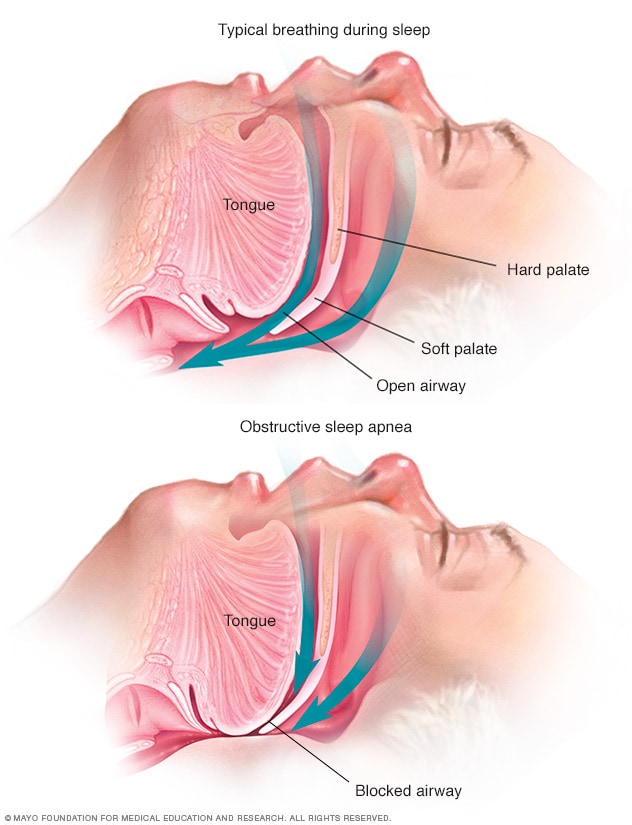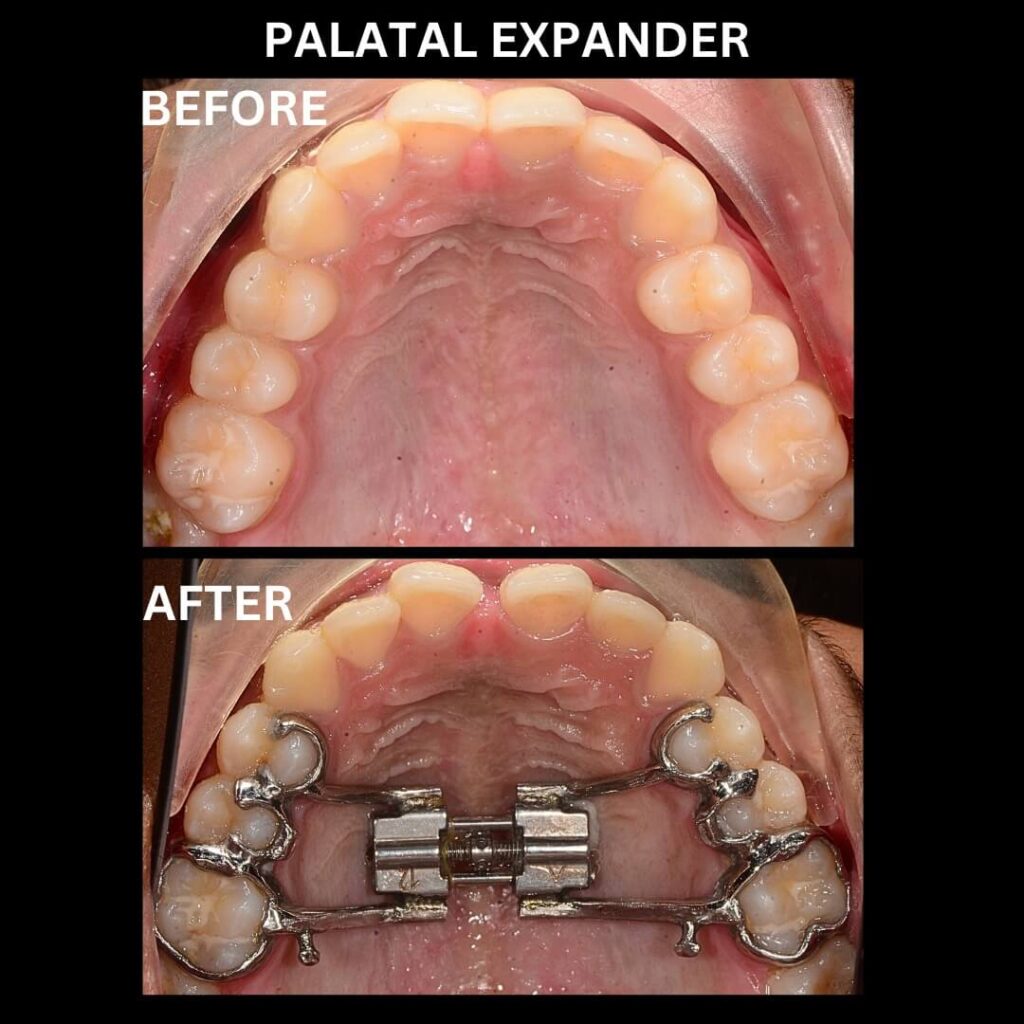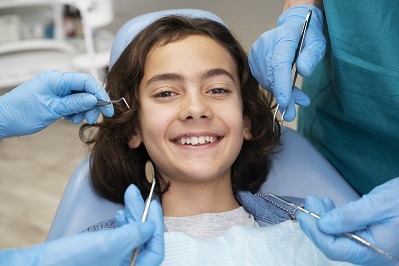In children, early dental checkups are as important as taking them for a checkup for cough and cold. Small cavities or gum issues can quietly grow, leading to pain, infection, and even tooth loss if ignored.
When infections spread, the entire body is impacted, not just the mouth. Teeth that don’t grow straight may also block airways to cause sleep apnea in children. Sometimes mouth breathing in children or snoring is spotted because their jaws are too small, which affects their sleep and brain development. Without proper checks, these problems can quietly worsen over time.
What is Pediatric Sleep and Breathing Issues?
Pediatric sleep and breathing issues happen when a child faces obstruction while breathing properly during sleep. Many children breathe through their mouth instead of their nose. This is called mouth breathing. It can happen when the nose is blocked, often from large tonsils or adenoids. Mouth breathing in children can cause a dry mouth, bad breath, and even change how the face grows.
Snoring is a sound made when the air is blocked while sleeping. Occasional snoring is common. But if a child snores loudly and often, it may be a sign of a more serious problem called sleep apnea.

Sleep apnea in children means breathing stops and starts during sleep. This can happen if the throat gets blocked. The child may snore, gasp or stop breathing for a few seconds. The child may also be sleepy during the day, have trouble in school or behave badly.
All the above can affect a child’s health, growth and learning. Treatment depends on the cause. Options include removing enlarged tonsils or adenoids.
Signs of Orthodontic Problems in Kids that Cause Breathing Issues:
Children may show mouth breathing instead of using the nose. Snoring or noisy breathing is common. Dry mouth or bad breath can occur. Frequent colds or blocked nose are signs. Teeth may show crowding or misalignment. The face may appear long and narrow. The upper jaw may look small or underdeveloped. Speech issues like lisping can appear. Children may have trouble chewing food. Tiredness during the day is a sign. Difficulty concentrating at school is common. Open mouth posture is often seen. Receding chin or small lower jaw can occur. Parents may notice irregular teeth shapes.
How Poor Sleep Affects Child Development?
As per medical science, the recommended sleep durations for children of all ages is:
- Infants (4–12 months): 12–16 hours
- Toddlers (1–2 years): 11–14 hours
- Preschoolers (3–5 years): 10–13 hours
- Children (6–12 years): 9–12 hours
- Teens (13–18 years): 8–10 hours
Impact of Lack of Sleep In Children:
- Poor sleep slows down brain growth in children.
- Sleep is needed for memory, focus, and self-control.
- Children who don’t sleep well have trouble paying attention. They struggle to remember things they learn. They often find it hard to solve problems.
- Lack of sleep can cause mood swings and make them feel upset. They may get angry quickly or feel anxious for no reason.
- Children without enough sleep can act too active or restless. They may seem hyper and impulsive, like they have ADHD.
- Poor sleep lowers school performance and grades.
- Growth hormone comes during deep sleep; less sleep means slow body growth.
How Mouth Breathing in Children Impacts the Teeth?
- Jaws grow the wrong way, causing crooked teeth.
- The palate or the roof of the mouth doesn’t grow wide enough, leading to a crowded smile.
- Makes the face grow long and thin, affecting the bite.
- Front teeth stick out
- Dry mouth issues leading to more decay.
- Gums can get inflamed
- Mouth breathing can affect the oxygen flow, leading to bad sleep and slower growth.
When to See an Orthodontist?
Early dental visits can help prevent bigger problems. Regular checkups are very important. See the orthodontist for sleep issues that is when the child has trouble sleeping or you spot mouth breathing in children or they often breathe through their mouth often.
- They grind their teeth at night.
- Child has crooked teeth or a small jaw.
- They have frequent headaches or neck pain.
- Children have difficulty chewing or swallowing, visit a dentist.
- Kids’ teeth are not aligned properly or they have an overbite or underbite, an orthodontist can help.
- Children’s gums are swollen or they have cavities.
- The kid has large tonsils or adenoids that affect sleep, visit an orthodontist or dentist.
- They have speech problems or lisping.
- Kid wakes up tired or irritable.
How Early Dental Treatments Help Kids Grow Healthy?

Sometimes, when children are young, their jaws or teeth might not grow properly. We can help fix this early, so they won’t have bigger problems later. For example, palatal expanders gently widen the upper jaw so there’s enough room for teeth and breathing.
Myofunctional therapy helps kids learn the right way to swallow and breathe, which affects how their jaws grow. We suggest the use of Habit-breaking Appliances to stop habits like thumb-sucking, which can harm teeth. Airway orthodontics checks if your child’s breathing is healthy, as poor breathing can affect their growth. Interceptive treatment means we fix small problems before they become big.
Could Orthodontics Solve Snoring in Children?
At Fort Dental Clinic, we don’t just fix teeth – we help your child sleep better, breathe easy and stay healthy. Sleep problems can harm your child’s health, but we catch them early through expert dental care.
With more than 15 years of experience and a caring team, we know how to spot orthodontic problems in kids before they cause bigger health issues. Don’t wait, come to our orthodontist for sleep issues because here little smiles get the care they truly deserve.
FAQs:
Mouth breathing, snoring, daytime tiredness, behavior issues, and grinding teeth are common warning signs. A pediatric dentist or orthodontist can help diagnose the cause.
Yes. Treatments like palatal expanders, myofunctional therapy, or removing enlarged tonsils can improve airflow and reduce sleep apnea symptoms.
It’s recommended to visit an orthodontist by age 7 to spot early signs of jaw or breathing issues, even if all baby teeth haven’t fallen out.
Occasional snoring is common, but loud, frequent snoring may signal sleep apnea and should be evaluated by a specialist.
It can lead to jaw misalignment, a narrow palate, crowded teeth, and poor facial development over time.

